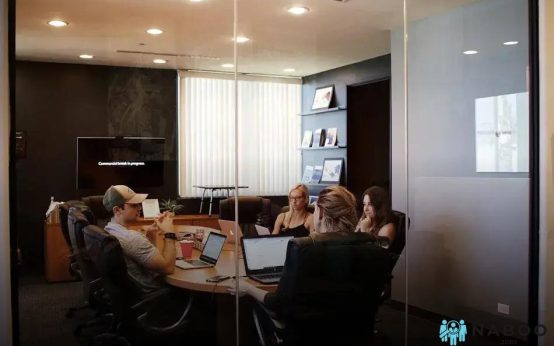Losing a job can be overwhelming and stressful. Handling being laid off requires strategic steps to regain control. It’s crucial to manage the emotional impact while reassessing your finances. Updating your resume and LinkedIn profile opens doors to new opportunities. In this post, we’ll explore effective strategies for personal and professional growth after a layoff.
Understanding the Emotional Impact
Losing a job can be a jarring experience that evokes a flurry of emotions. Shock is often the initial reaction as one grapples with the sudden change. This may quickly be followed by anger or sadness as the reality sets in and the implications become clearer.
It’s important to recognize these feelings as natural and valid. Everyone processes the emotional impact of job loss differently, and it’s okay to feel overwhelmed. Acknowledging these emotions is the first step in managing them effectively.
While it’s easy to fall into negativity, finding ways to cope is crucial. Talking to friends and family can provide valuable emotional support. They can offer a listening ear as well as encouragement and practical advice.
Engaging in mindfulness practices like meditation or journaling can also be beneficial. These activities can help you stay grounded and process emotions healthily. Additionally, seeking professional support from a counselor or therapist might be necessary, especially if feelings become too difficult to manage alone.
Using this time to evaluate what you want in a career is another positive step. Be gentle with yourself as you navigate through these emotional stages, and remember, it’s a process that takes time. Understanding and managing the emotional impact effectively can build resilience and prepare you for the journey ahead.
Reassess Your Finances
Managing your finances is crucial after being laid off. Start by examining your current financial situation. Take stock of your savings, including emergency funds, investments, and retirement accounts. This will give a clear picture of available resources.
List all your expenses and categorize them as essential or non-essential. This helps identify areas where spending can be reduced. Essential expenses like rent, utilities, and groceries should be prioritized.
Consider creating a detailed budget to manage these expenses more effectively. Utilize budgeting apps or spreadsheets to keep track of your spending and stay disciplined.
Contact creditors or service providers to negotiate payment plans or temporary relief options. Many companies offer assistance to individuals facing financial hardships, and this can ease your financial burden during this period.
You might want to explore side jobs or gig economy work to generate some income. Flexibility is key when facing financial challenges, and every little bit can help bridge the gap until a new full-time position is secured.
Finally, consider speaking with a financial advisor if you feel overwhelmed. They can provide guidance tailored to your specific situation, ensuring you’re making informed decisions during this transitional phase.
Update Your Resume and LinkedIn
It’s important to immediately update your resume and LinkedIn once you’ve been laid off. Ensure your resume accurately reflects your most recent experiences and achievements. Highlight skills that are particularly relevant to new opportunities you’re considering.
On LinkedIn, update your profile to reflect your current status. Use a professional headline that emphasizes your expertise and availability. Be sure to include a detailed and comprehensive summary that showcases your career journey and key accomplishments.
Consider requesting recommendations from former colleagues or supervisors. These can serve as strong endorsements of your skills and character. Engage actively on LinkedIn by joining professional groups, following industry leaders, and participating in discussions relevant to your field.
Another key aspect is to tailor your resume for each job application. Highlight different skills or roles as necessary to better align with the job description. Make sure your LinkedIn profile is set to ‘open to work’ so recruiters know you’re available.
Finally, keep your online presence consistent and professional. This reinforces your personal brand and ensures that potential employers view you as a credible candidate.
Explore New Opportunities
Discovering Untapped Possibilities
Losing a job can be challenging, but it opens doors to new possibilities. Start by identifying sectors or roles you’ve always been curious about. Engaging in networking events or webinars can provide insights and connect you with professionals in fields you’re interested in.
Consider taking online courses or workshops to gain skills pertinent to these new fields. Websites like Coursera, Udemy, or LinkedIn Learning offer a wide array of courses from programming to creative writing. These platforms empower you to learn at your own pace while enhancing your skill set.
Volunteering is another avenue to explore. It helps you build experience, widen your network, and perhaps even discover a passion you hadn’t considered before. When considering volunteer opportunities, opt for roles that align with your career goals, as they can provide valuable experience and testimonials.
Consulting or freelancing might also be viable options. Platforms such as Upwork or Fiverr offer opportunities to monetize your skills on a flexible schedule. This not only provides a financial safety net but also enriches your professional portfolio.
Finally, consider entrepreneurial ventures. If you have a business idea, this could be the perfect time to cultivate it. Investigate markets, develop a business plan, and reach out to potential mentors who can provide guidance. The evolving job market means there are numerous resources to support budding entrepreneurs.
Focus on Personal Growth
Being laid off can be a transformative moment that urges you to assess and focus on personal growth. Seize this opportunity to develop new skills or hone existing ones. Enroll in online courses or workshops that spark your interest. This not only sharpens your expertise but levels up your qualifications for future roles.
Networking plays a crucial role in personal development. Connect with professionals in your industry through seminars, online platforms, or local groups. By exchanging ideas and learning from others, you expand your horizon and build valuable relationships.
Self-reflection is another pivotal aspect. Use this time to understand your strengths and areas needing improvement. Journaling or meditation can offer insights into your personal and professional aspirations.
Volunteering
can be an excellent way to grow personally while contributing to the community. This enhances your sense of purpose and can introduce new perspectives and skills, potentially opening doors to unexpected opportunities.
Remember, personal growth is a marathon, not a sprint. Focus on small, consistent steps and celebrate progress along the way. This approach not only boosts your confidence but also ensures you emerge stronger and more versatile from the experience of being laid off.




